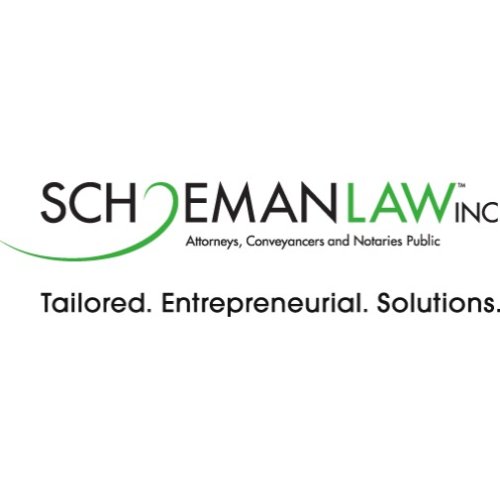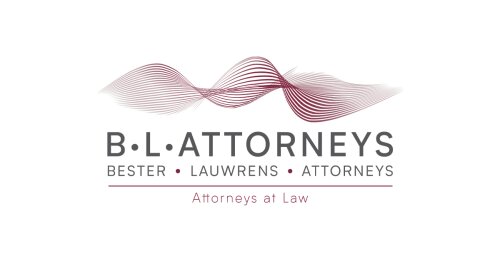Best Child Abuse Lawyers in Cape Town
Share your needs with us, get contacted by law firms.
Free. Takes 2 min.
Free Guide to Hiring a Family Lawyer
List of the best lawyers in Cape Town, South Africa
About Child Abuse Law in Cape Town, South Africa
The law in Cape Town, South Africa, places strong emphasis on the protection of children's rights. Child abuse, whether physical, emotional or sexual, is seen as a grave crime punishable by stiff penalties. South Africa's Child Protection Act dictates that any person who suspects a child to be a victim of abuse should immediately report it to a designated child protection authority such as the police or Department of Social Services.
Why You May Need a Lawyer
Child abuse cases can be complex with extensive legal implications. A lawyer offers valuable guidance through the intricate legal network, ensures the victim's rights are protected and advocates for appropriate remedies. If falsely accused, a lawyer can contest the charges and represent you in court proceedings. They can also help file restraining orders and negotiate custody and visitation rights when necessary. Lastly, children may need representation to secure justice and access any stipulated reparations from the court case.
Local Laws Overview
In Cape Town, the laws mainly governing child protection are the Children's Act, the Sexual Offences and Related Matters Amendment Act, the Domestic Violence Act, and the Criminal Procedure Act. These legislations ensure children's rights, strict penalties for offenders, protection orders for threatened individuals, and measures for disclosure testimony to minimize children's presence in courtrooms. It is important to remember that anyone aware of child abuse and neglect is bound by law to report it to authorities.
Frequently Asked Questions
What constitutes child abuse?
Child abuse includes not just physical harm, but also neglect, emotional maltreatment, and sexual exploitation. A child's right to education, basic health care, shelter, and nutrition must never be violated.
Who is mandated to report child abuse?
Everyone knowing about child abuse or neglect is legally required to report it. This responsibility is not limited to professionals involved in childcare.
What happens when a report is made?
When a report is made, an investigation is initiated. If abuse is confirmed, the authorities take necessary steps to ensure the child's protection.
Are child abuse cases confidential?
Yes, any inquiries into child abuse are conducted with utmost confidentiality. However, information may be disclosed to professionals directly involved in the case.
What are the penalties for child abuse?
Penalties can range from fines to imprisonment, depending on the severity of abuse. Court-mandated counselling or anger management classes may also be imposed.
Additional Resources
The South African Police Service and Department of Social Development are the main governmental bodies dealing with child abuse. Non-governmental organizations such as Childline South Africa, Rape Crisis Cape Town Trust, and Molo Songololo offer counselling and legal assistance. Various online platforms provide valuable information on child rights and abuse prevention.
Next Steps
If you suspect a child is being abused, immediately reach out to the police or child protection organizations. Consult with an experienced lawyer if you or a child you know is involved in a child abuse case. Do not hesitate to take action, as any delay can risk a child's life or psychological wellbeing. Remember, ignorance and silence contribute to the persistence of child abuse.
Lawzana helps you find the best lawyers and law firms in Cape Town through a curated and pre-screened list of qualified legal professionals. Our platform offers rankings and detailed profiles of attorneys and law firms, allowing you to compare based on practice areas, including Child Abuse, experience, and client feedback.
Each profile includes a description of the firm's areas of practice, client reviews, team members and partners, year of establishment, spoken languages, office locations, contact information, social media presence, and any published articles or resources. Most firms on our platform speak English and are experienced in both local and international legal matters.
Get a quote from top-rated law firms in Cape Town, South Africa — quickly, securely, and without unnecessary hassle.
Disclaimer:
The information provided on this page is for general informational purposes only and does not constitute legal advice. While we strive to ensure the accuracy and relevance of the content, legal information may change over time, and interpretations of the law can vary. You should always consult with a qualified legal professional for advice specific to your situation.
We disclaim all liability for actions taken or not taken based on the content of this page. If you believe any information is incorrect or outdated, please contact us, and we will review and update it where appropriate.

















